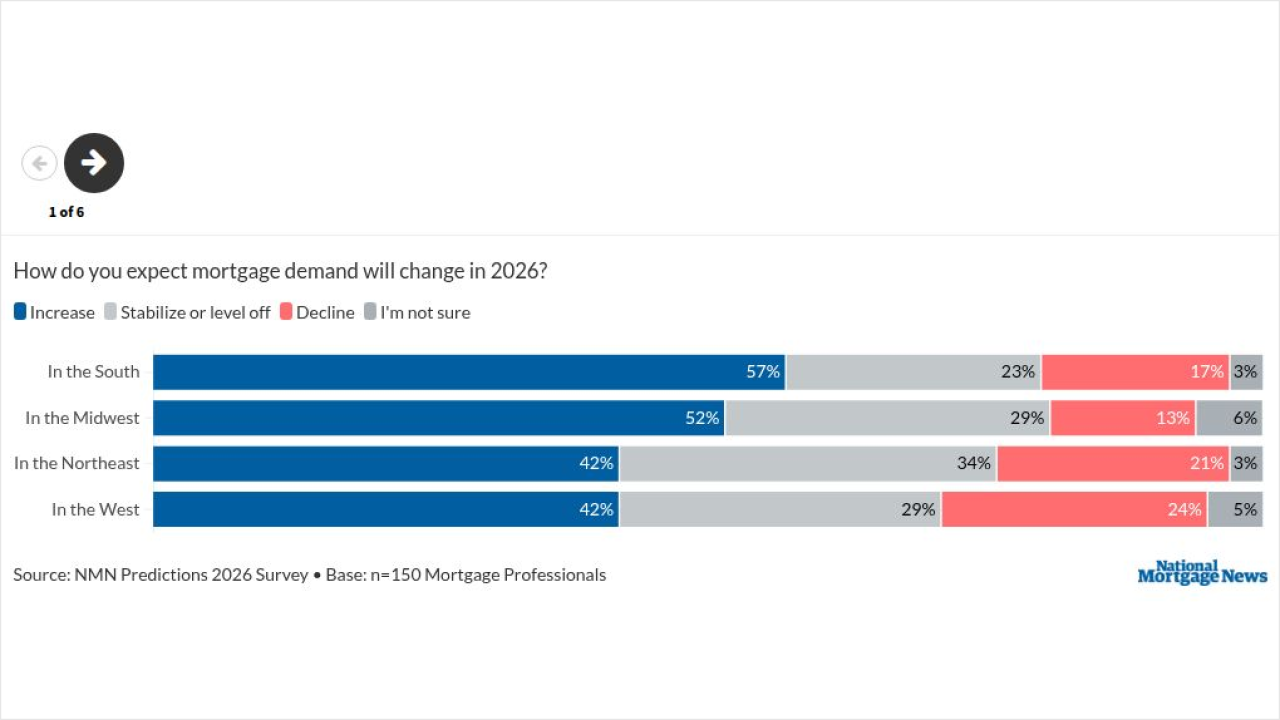Mr. Cooper's latest results staged a recovery from
The mortgage company reported $181 million in net profit for the first quarter, up from $46 million in the last three months of 2024 and $37 million
The nonbank's results add to other indications that some aspects of the first quarter's "higher for longer" rate scenario have had an upside for lenders with efficient servicing businesses.
"This environment is playing to the strengths of our balanced business model," said
Automation the company is investing in leverages that strategy, executives said during an earnings call.
"Our technology strategy has benefited from our balanced business model," Mr. Cooper CEO Jay Bray said.
While
The company also is planning to see additional benefits from
Automated efficiencies helped servicing produce $273 million in pretax operating income during the quarter, according to the company. The equivalent figure for originations was $32 million, with that segment also benefiting from the application of automation to operations.
Pretax operating income in servicing has grown steadily and somewhat in line with efficiencies of scale in its portfolio. It was up from $229 million the previous quarter and $157 million a year earlier.
The company's servicing portfolio was just shy of $1.14 trillion in the first quarter, firmly above the 13-digit benchmark level that's long been its aspiration to maintain.
While Mr. Cooper continued to be an avid purchaser of bulk MSRs in the quarter, executives indicated that its appetite was not endless and that it's keeping an eye both on whether pricing remains attractive and the soundness of its capital and liquidity.
Mr. Cooper plans to add around $100 billion in UPB split between MSRs and subservicing to its portfolio in the second quarter, Weinbach said.
"After that, growth will depend on the yields available in the market," he added. "While we're optimistic about a continued robust supply and MSRs, we're also seeing some signs of aggressive pricing."
Meanwhile, in originations, the unpaid principal balance of home loans funded during the first quarter was $2.9 billion, up slightly relative to $2.7 billion in both the fourth quarter of last year and the first three months of 2023.
The majority of originations during the quarter came in through the correspondent channel, which generated $1.5 billion in loans during the period, compared to $1.4 billion from direct-to-consumer sources.
In the previous quarter, Mr. Cooper funded $1.5 billion mortgages through the correspondent channel and $1.2 billion through direct-to-consumer. During first-quarter 2023, the company funded $1.4 billion in volume through direct-to-consumer and $1.3 billion via correspondent.



